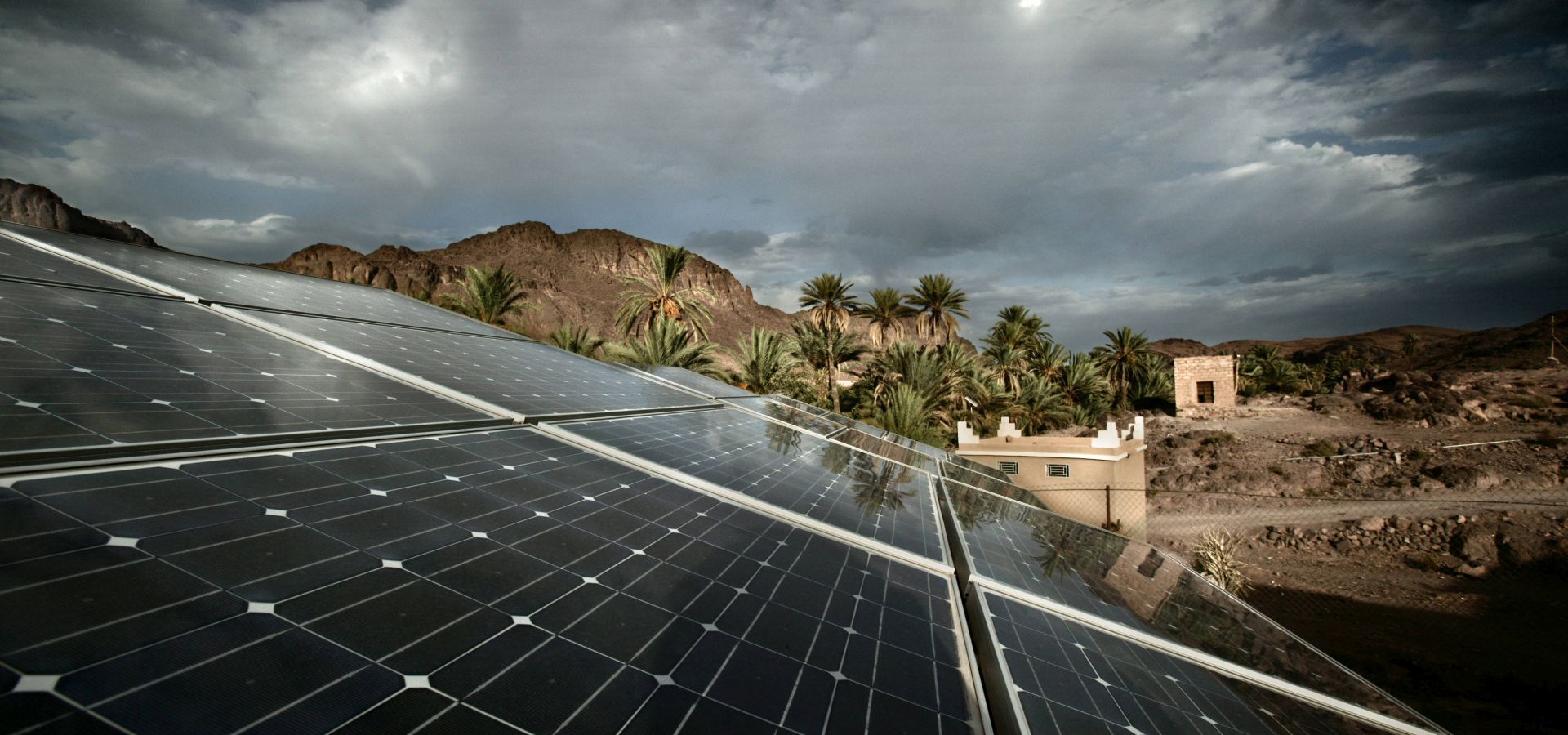The State Secretariat for Sustainable Development organized the National Carbon Market Conference on Friday, July 7 in Rabat. There it announced Morocco’s integration to the carbon market, two weeks after the adoption of the National Strategy for Sustainable Development. Chaima Lahsini of Morocco World News explains.

Photovoltaic micro-plants in Morocco like this one can help jump-start the energy transition (Photo by Isofoton, edited, CC BY-SA 3.0)
Morocco is expected to officially integrate the carbon market this summer. Seven months after the organization of COP 22, the conference presented Morocco’s first feedback on the Climate Change conference, as well as the best practices of the carbon market around the world, informing and involving state and non-state actors as well as soliciting their contribution and commitment, the State Secretariat said in a statement.
The National Carbon Market Conference also constituted an opportunity to galvanize international financial institutions and climate finance and to promote the leading role of Morocco in the implementation of the Paris agreement.
This integration was announced during the conference gathering some 200 to 300 high-level personalities, political, economic and financial decision-makers from Morocco and around the world, particularly Africa.
During the Energy Forum held in Casablanca by the CGEM, Nezha El Ouafi, Secretary General for Sustainable Development, underlined the importance of this step, especially after the adoption of the National Strategy for Sustainable Development (NSSD) two weeks ago by the Ministerial Council.
Considered a benchmark for all national sustainable development policies, the adoption of the NSSD would therefore be immensely supported by Morocco’s integration to the carbon market, a crucial step in pursuing environmental commitments made by Morocco before and during COP22.
El Ouafi highlights a number of advantages of this integration, including a paradigm shift in production and consumption. “The sequence of these different stages will undoubtedly bring about major changes in production and consumption patterns and will constitute a major turning point in our ecological transition process,” the Secretary General explained yesterday during the Energy Forum.
El Ouafi also confirms “Morocco’s unwavering determination to continue its transition to an economic model based on the fight against the harmful effects of climate change.”
A crucial step in Morocco’s transition process
Morocco’s energy transition is conditioned by four major pillars, which are the frameworks for national environmental action. If the energy transition, as a strategic orientation, constitutes the first pillar, the national environmental charter, Morocco’s engagement in fighting greenhouse gases (GES), and the implementation of an energy transition model are the three others.
Due to Morocco’s economic situation and the international status of the carbon market, including low demand for carbon credits, this national debate will help mobilize economic sectors to become more involved in the carbon market through sectoral strategies, thus generating high-quality carbon credits as well as a strong involvement in the international system.
The National Carbon Market Conference, launched in partnership with the World Bank four months before COP 23, will maintain the momentum generated by COP 22 by capitalizing on its results and in particular by launching the study Design of the Carbon Market model.
This article has been republished from Morocco World News.
Chaima Lahsini is a freelance journalist and activist with the Al-Fam collective in Rabat. She holds a BA from the university of Mohammed V in communication and information sciences. She previously worked as a subject matter expert for the account of Facebook Middle East Quarters in Casablanca, and was a regular volunteer on humanist projects around the MENA region with AIESEC programs.
The photo is of a small distributed solar installation. But I’ve not seen evidence yet that Morocco is serious about distributed solar. The political culture of most Arab states is stultifyingly top-down. Egypt even has FITs that are lower for small projects than big ones. Democratisation is definitely not a welcome feature of the transition.
It is a very helpful and informative blog post. I would like to thank to you for providing such information I have also have a website providing very good information.